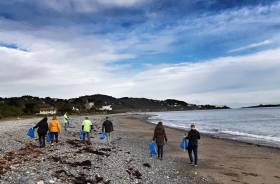Displaying items by tag: Investment Priority
Wellbeing of Oceans Must be Seen as An Investment Priority
In what is a key variable in the fight against climate change, the world’s oceans cannot be a mere afterthought on the global economic and environmental agenda.
As the Irish Examiner reports, The Earth’s oceans face many threats, none of which have quick fixes. Still, the solutions are known, and with a sufficiently broad coalition of partners, we can get the ball rolling on a number of fronts.
A wide range of human activities — from burning fossil fuels to over-fishing — have been degrading the oceans for years. By increasing the absorption of carbon dioxide, global warming is acidifying the oceans and reducing oxygen levels, harming or killing marine plants, animals, and other organisms.
And as the ice caps melt, rising sea levels are putting hundreds of millions of people in coastal areas at risk.
Moreover, owing to a lack of modern treatment plants in many cities, especially in Africa and Asia, sewage is being dumped into rivers and canals, where it eventually runs off into the oceans, introducing large amounts of plastic particles and toxins.
The tonnes of rubbish dumped daily into streets, backyards, rivers, beaches, and coastal areas also end up in the oceans.
To read further click here and the European Investment Bank's Clean Oceans Initiative. In addition to Ireland's Clean Coasts which organises various programmes throughout the year.





























































